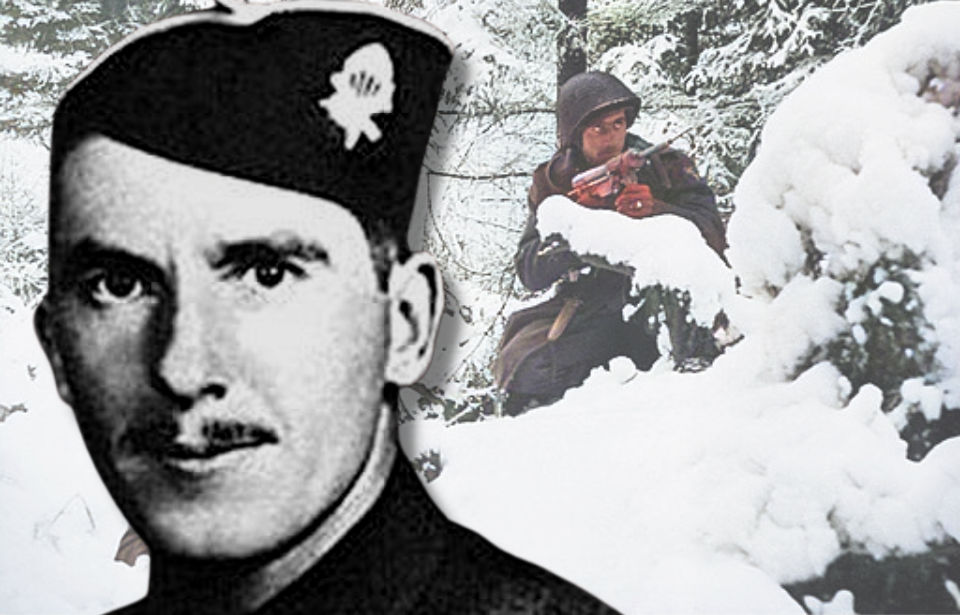Alongside the Medal of Honor, Funk, a paratrooper with the 82nd Airborne Division, also received the Distinguished Service Cross, the Silver Star, the Bronze Star, and three Purple Hearts for his outstanding service. This impressive collection of awards solidified Funk’s reputation as one of World War II’s most decorated American soldiers.
Leonard Funk’s entry into the US Army
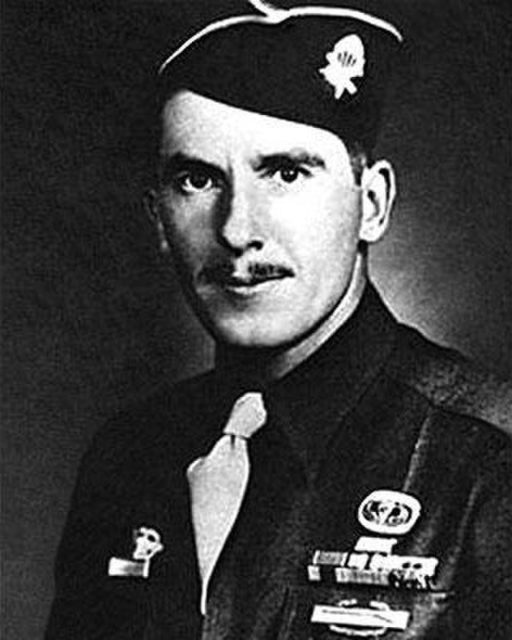
Leonard Alfred Funk, Jr. was born on August 27, 1916, in Braddock Township, Pennsylvania, and grew up near Pittsburgh. At the age of 24, just months before the Japanese attack on Pearl Harbor, he enlisted in the US Army.
In 1942, Funk volunteered for the paratrooper program, underwent training and was assigned to Company C, 1st Battalion, 508th Parachute Infantry Regiment, stationed at Camp Blanding, Florida. In 1943, he was deployed to England in preparation for the D-Day landings, becoming part of the esteemed 82nd Airborne Division.
Throughout his service as a paratrooper, Funk played a crucial role in some of the Allies’ most significant battles.
Leonard Funk in action
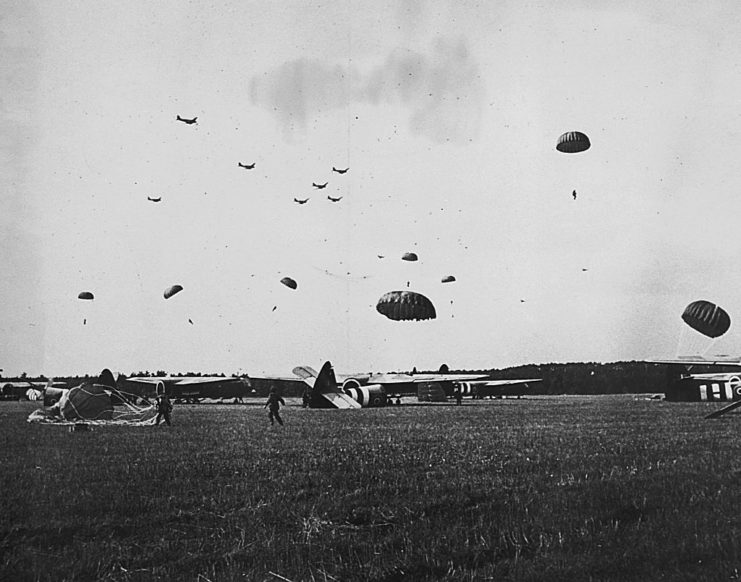
Following D-Day, Funk’s next major engagement took place during Operation Market Garden in September 1944. While leading a three-man patrol, he launched an attack on a German anti-aircraft battery, personally eliminating 20 members of the gun crew and injuring several others.
Funk’s actions during Operation Market Garden are credited with saving the lives of hundreds of Allied soldiers. For his “initiative, outstanding bravery, and strong personal leadership despite overwhelming enemy superiority in both numbers and firepower,” he was awarded the Distinguished Service Cross.
He further distinguished himself in the Battle of the Bulge, where he was awarded the Medal of Honor.
Bravery during the Battle of the Bulge
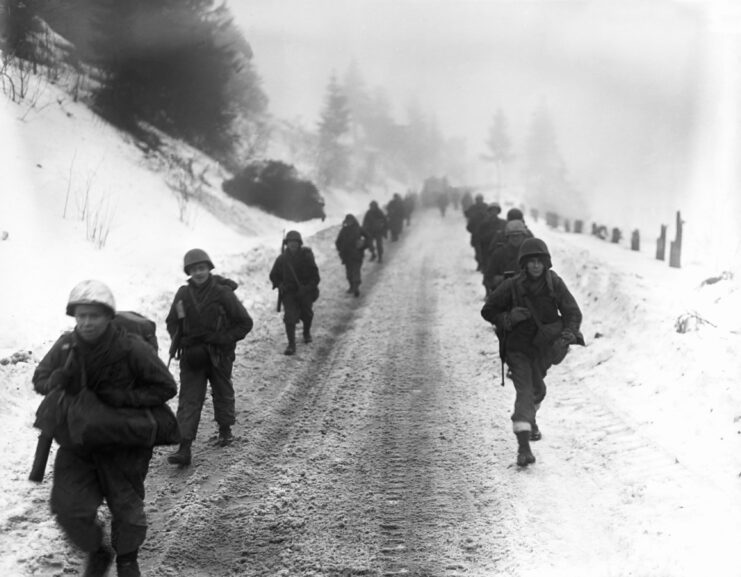
By January 29, 1945, Leonard Funk and his unit had been engaged in a fierce struggle with the Germans for several weeks. Despite the continuous fighting, they had managed to advance 15 miles. This advance positioned them to launch an assault on the town of Holzheim, which was under German control.
As the company’s executive officer, Funk was aware that his forces were not enough to overcome the Germans. However, he took bold action by boosting his unit with a platoon of clerks, typically noncombatants. Amidst a relentless barrage of machine gun and artillery fire, this thrown-together team attacked the town. Remarkably, they cleared 15 houses without sustaining any casualties. Soon after, another American unit arrived, helping them in securing the town for the Allies.
Funk was awarded the Medal of Honor
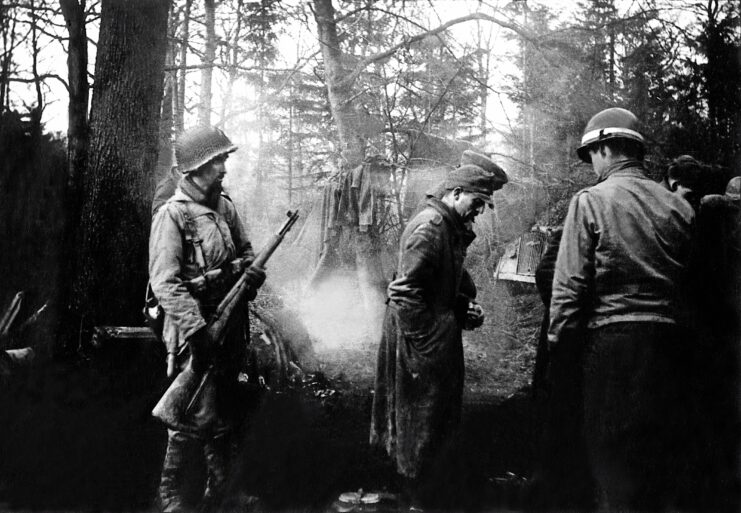
Eighty Germans were captured and placed under guard by four troops, while the rest of the US soldiers doubled back to ensure the town was completely empty of Germans. While this was happening, the four guards became overpowered by their prisoners, who immediately started making preparations to attack the Americans.
Funk returned around this time and walked straight into the group, who were no longer his prisoners of war. A German officer pointed a loaded weapon at the paratrooper and demanded he surrender. Pretending to obey, Funk lowered his submachine gun. However, in a flash, he pulled the trigger and mowed down the officer and a number of others.
He screamed for his unit to disarm the rest, leading to the deaths of 21 German soldiers, while the rest were captured in mere moments. On September 5, 1945, Funk was awarded the Medal of Honor by President Harry S. Truman. With his assortment of wartime medals, he is one of the most decorated paratroopers of World War II.
Leonard Funk’s post-service life
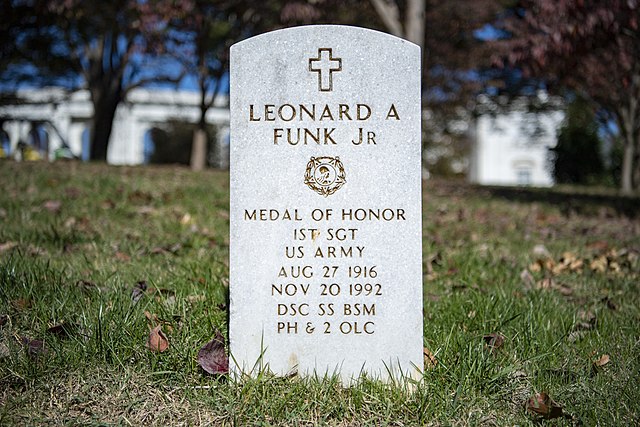
After leaving the Army, Leonard Funk continued working with soldiers, focusing his energy on the Veteran’s Administration in the Pittsburgh area before retiring in 1972. During this time, he and his wife, Gertrude, had two daughters.
Want War History Online‘s content sent directly to your inbox? Sign up for our newsletter here!
On November 20, 1992, the war hero passed away at the age of 76 and was buried at Arlington National Cemetery. Three years later, a section of road where he lived was renamed in his honor. In 2008, he was inducted into the 82nd Airborne Division’s Hall of Fame.
